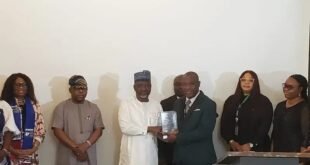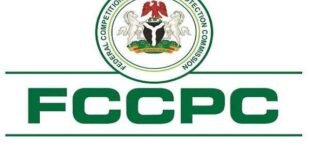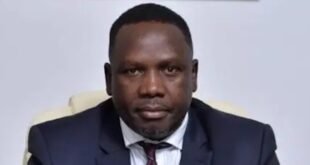The Minister of Information and National Orientation, Mohammed Idris, has rejected the claim that the Federal Government mobilized anti-corruption institutions as a tool for political opponents.
The clarification came in response to the accusation by the former Vice President Atiku Abubakar, who accused that the administration of the Tinubu Bola President of using the Economic and Financial Crime Commission (EFCC) to intimidate and weaken the opposition forces ahead of the 2027 General Election.
In a previous statement, Atiku, Nigerian Vice President from 1999 to 2007, warned that such practices threaten the country’s democracy, describing the alleged action as a political harassment and persecution.
Speaking on Wednesday at the opening of the involvement of the ICPC round table in the agenda setting for the strategic integration of state information commissioners in the war against corruption, which was held in Abuja, Idris stressed that the Tinubu government remained strongly committed to allowing anti-graphic institutions to function independently and without political interference.
“Against corruption is indeed one of the 8 points of the Tinubu government, and that is why the President strengthens the institutional framework to fight corruption, especially through ICPC and EFCC,” Idris said.
He added that the government’s non-interference policy ensured that anti-corruption institutions operate with professionalism and are in line with the rule of law, rejecting the idea that they function as an instrument of political witch hunting.
The Minister also reiterated President Tinubu’s commitment to eradicate corruption in public institutions, stressed that “There will be no safe place for corruption in Nigeria.” He noted that the government advanced judicial reforms aimed at handling delays in trials related to corruption to ensure justice is served quickly and fairly.
Highlighting the theme of Round Tables, Partnerships to strengthen transparency and accountability at the state and local government levels through strategic communication, Idris supports the importance of collaboration with state information commissioners in promoting transparency, accountability, and effective communication from government policies.
He urged the government and state officials to support the national development agenda outside of partisan divisions, emphasizing that the new hope agenda of President Tinubu was focused on economic restructuring, diversification, and inclusive growth.
Idris then praised the practice of independent corruption and other related violation commissions (ICPC), under the leadership of Dr. Musa Aliyu, for adopting an innovative communication strategy involving stakeholders at the grassroots to strengthen transparency and accountability at all levels of government.
 JamzNG Latest News, Gist, Entertainment in Nigeria
JamzNG Latest News, Gist, Entertainment in Nigeria











